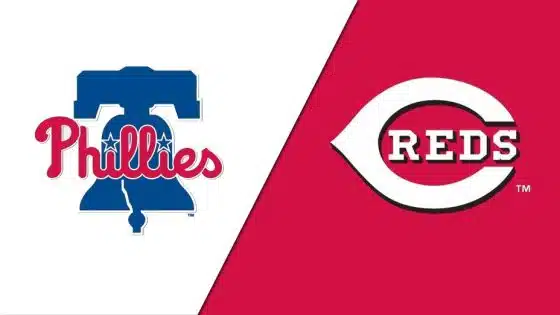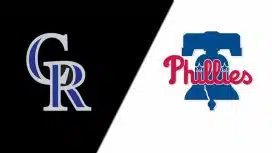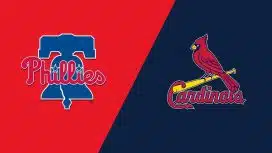By: Matt Alberston, Historical Columnist
"Dallas Green was the last of the hard-ass managers, surviving from the pre-free agency era" wrote Bill James in his Guide to Baseball Managers. James opined that Green, who led the Philadelphia Phillies to their first championship in 1980, was the most controversial manager of the 1980s. Green's ominous 6-foot-5 frame, booming voice, and direct/blunt personality was the fine sandpaper needed to refine an aging Phillies team's rough imperfections. Without any doubt, if Dallas Green was not the Phillies skipper in 1980, the Phillies would not have won the 1980 fall classic. He is best known for his persona, attitude, and leadership during that 1980 campaign, but he also spent six decades in baseball in various roles as a player and front office person.
Green passed away on Wednesday March 22 at the age of 82, succumbing to kidney disease.
George Dallas Green was born on August 4, 1934 in Newport, Delaware, 35 miles from Philadelphia. According to Society for American Baseball Research (SABR) biographer Gregory H. Wolf, "[Green] was an unabashed Phillies fan even though they were consistently among the worst teams in baseball in the 1940s. He recalled going to see the Phillies play in Shibe Park as a youngster…". He played Little League and American Legion ball in his youth, and starred in both baseball and basketball at Conrad High School in Newport. After high school, Green attended the University of Delaware and refined his craft as a pitcher. The Phillies signed Green with the Phillies as an amateur free agent in 1955.
Green was a hard throwing pitcher who had control issues throughout his career. He was invited to Phillies spring training in 1958 and was assigned to Triple-A Miami, where he competed with other Phillies top pitching prospects and one ageless legend, ~ 51-year-old Satchel Paige. Unfortunately, he suffered arm and shoulder injuries in 1959, and his ceiling as a pitcher was greatly reduced. He finally reached the major leagues in mid-1960, where he remained as both a starting pitcher a reliever until his career ended in 1967. In total, he spent six seasons with the Phillies in the yo-yo role, compiling a 20-22 record and 4.28 ERA.
Also Read: We appear to be witnessing the end of Jimmy Rollins' career
In 1964, infamously known in Philadelphia baseball history as the "Year of Blue Snow," Green began the year in the Phillies bullpen as the club's longest actively tenured player. He was demoted to the minors after a catastrophic outing against St. Louis, where he gave up six hits and four runs in two innings of relief on July 25. Green later remarked in a 1980 Sporting News article, “We were going for our first pennant in years,” he remembered. “We had a pretty good team and it looked like we were going to wrap it up. It really hurt me. I just felt crushed.”
Phillies owner Bob Carpenter and general manager John Quinn offered Green a job as a player/pitching coach with the Reading Phillies. Ironically, his boyhood idol Robin Roberts, in the throes of attempting a comeback at the age of 40, was a member of the Reading rotation. “What can I tell Robin Roberts about pitching?" Green remarked to the Sporting News in 1967. He retired as a player at the end of the 1967 season and transitioned into the role of minor league manager in 1968 where he remained until an organizational shakeup in 1972. Carpenter fired GM John Quinn and named Paul "Pope" Owens as the new GM while Green was promoted to director of minor league operations. It was in this role that Green helped accelerate the development process, which helped the Phillies win it all in 1980.
One of Green's greatest efforts was his ability to select prime talent in the June amateur drafts. Historian Bill Kashatus explained in his book Almost a Dynasty: The Rise and Fall of the 1980 Phillies, that "Among those he drafted were 10 prospects who would later make significant contributions to the 1980 world championship team: pitchers Warren Brusstar, Larry Christenson, Randy Lerch, Dickie Noles, Dick Ruthven, Kevin Saucier, and Bob Walk; catcher Keith Moreland; and outfielders Lonnie Smith and George Vukovich…and [additionally] infielder Ryne Sandberg."
Green, in partnership with former Phillie Howie Bedell, was able to drive forth a team first mantra in the minor leagues and in the Phillies front office. The duo was also responsible for adding pitching coaches to each farm club and a third coach, who would round out the manager's deficiencies, to each farm club. They also mandated that managers limit their starting pitchers' innings in an effort to discover who could be good relievers, a process which set the role for Kevin Saucier and Dicke Noles on the 1980 pitching staff.
The organization's prime talent began to crystallize at the major league level in the mid-1970s which resulted in three straight trips to the National League Championship Series from 1976-1978. The players on those teams survived on raw talent, twice winning 101 games during the regular season. But it was determined in August 1979 with the Phillies mired in fourth place that Danny Ozark's loose managing style would not push the club over the top and into the World Series. Carpenter and Owens fired Ozark and sent Green down to be the field manager for the final 40 games of the season in order to evaluate the team in preparation for the 1980 season.
As manager, Green scrutinized player performances, criticized poor attitudes, and enforced strict team first rules and policies. Tug McGraw lamented in a 1979 Philadelphia Daily News article that "…players seem to hate the fans, they seem to hate the press, and when they come into the clubhouse they act like they hate the manager and each other." It was Green's job to determine whose attitude could be mended, who really wanted to be a Philadelphia Phillie. With the assessment well underway, it was the job of upper management to find a new manager to lead the club in 1980.
Trending: Charlie Manuel discusses when he thinks Phillies will return to contention
Several books and articles explain that Carpenter and Owens felt Green was the right man for the job, as he accepted the job reluctantly and only at the insistence of Carpenter and Owens. However, contrary to these stories, Howie Bedell spoke of a different engagement during the Connie Mack chapter's SABRday meeting on January 28. Bedell told that he, Owens, Carpenter, and Green met in Owens' office to discuss the field manager vacancy for the 1980 season. Owens asked Green who he thought should be the club's manager in 1980. To Owens' dismay, Green said that he felt he was the best choice because he knew the roster inside and out. Bedell revealed that Owens asked the question in the hopes that Green would say that Owens should be the club's field manager in 1980 and was taken aback when Green answered otherwise.
Green was a bullish manager who had confrontations with several high profile stars including Larry Bowa and Garry Maddox, who were in contract disputes with the club throughout the winter and early 1980 spring training. One player said that Green acted like a drill sergeant. In the first clubhouse meeting of spring training 1980, Green told the team that he didn't think "they had enough desire, character or heart to carry through a 162-game schedule." He further detailed that they were an aging club who could no longer rely on raw talent to win ball games and would instead have to compete every inning aggressively and with renewed emotion and enthusiasm. If they didn't, he promised to promote talented youngsters from the farm system who were as equally talented and driven by desire and emotion. Furthermore, he broke up cliques that had formed in the clubhouse over the previous seasons, and lockered rookies next to veteran stars.
The Phillies were picked to finish fourth in the National League East prior to the 1980 season. Green was quoted in the Sporting News promising that the changes will be uncomfortable and warranted. “It’s not going to be a country club; you can count on that. It’s going to be tough,” he said. “It’s our job to push them and we plan to do that.” He created team rules that Bowa thought were "high schoolish." But, as catcher Bob Boone later explained “We hated him…he was driving us crazy. I don’t know if it was a unique approach, but it was a relationship that worked.” Green was able to navigate a tough clubhouse but eventually earned the respect of each player on the club.
The 1980 World Series championship was Green's crowning achievement in baseball, but it was not his last. He left Philadelphia for the Chicago Cubs in 1981 where he became that team's GM and helped orchestrate a trade that involved obtaining Ryne Sandberg and Larry Bowa from Philadelphia. Later, he managed both the New York Yankees and New York Mets. In total, Green's career major league managerial record was 454-478. But he was a true baseball lifer who could not stay away from the game and in 1998 rejoined the Phillies front office as an advisor and special assistant. He was honored by the team in 2006 when he was inducted onto the Phillies Wall of Fame at Citizens Bank Park.
All of us at Sports Talk Philly mourn the loss of Dallas Green and wish the best for his surviving family.




